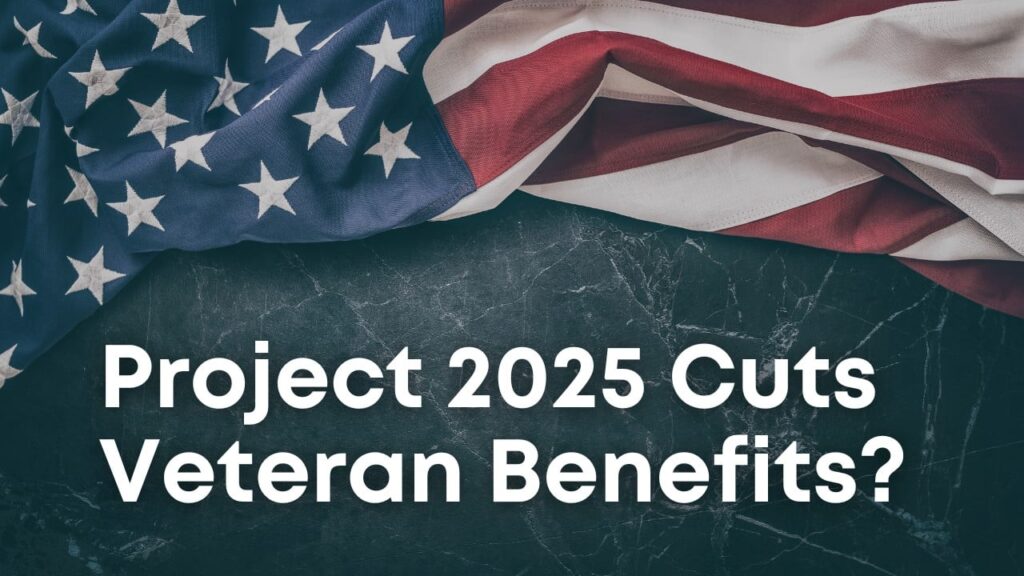Project 2025 Recommendations: VA (VBA) Benefits Defined?

In today’s commentary, we’re going to discuss Project 2025 as it pertains to the recommendations for the Veterans Benefits Administration (VBA). For those who may not know, the VBA handles all veterans’ compensation, so be sure to stick around—you definitely don’t want to miss this video.
Before we dive into today’s topic on Project 2025 and the recommendations they have for the VBA, it’s important to note that we’re only providing our opinion as a former VA rater. VA raters work under the VBA, and while we’re not speaking from a political perspective—whether Republican, Democrat, or Independent—we are offering our feedback on the information being recommended.
Now, let’s get into it. We’ll share our screen to walk you through what we’ve reviewed. We’ve focused on the VBA section, as this is what many of you have asked about. It took us a couple of days to thoroughly review the recommendations, and we’ve color-coded our agreement or disagreement:
- Blue for what we agree with.
- Red for what we disagree with.
- Black for points we’re on the fence about, but we’ll explain our reasoning.
Veterans Benefits Administration (VBA): Need for Reform
One of the most evident and ongoing concerns is the complexity of benefits, which can lead to confusion for veterans. If not mitigated early in the process, this confusion can result in long-term distrust and animosity toward the VA. We completely agree with this assessment because we’ve experienced this firsthand during the process of adjudicating our claim through the Atlanta Regional Office. Veterans often feel as though the VA has turned its back on them, and we felt the same way during our process.
VA Must Improve Timeliness
The VA must improve the timeliness of claim adjudication and benefits delivery. Veterans want the VBA to provide timely responses, offer empathetic customer service, and deliver benefits without frustrating delays—weeks, not months. We agree with this, and it can be done, but it all starts with mindset—management mindset, leadership mindset—from the top down. Additional training is necessary. For example, if a veteran submits a Disability Benefits Questionnaire (DBQ) for an increase, and that DBQ is actionable and sufficient, why is a VA employee requesting a C&P exam when it’s not needed? This prolongs the claims process unnecessarily.
Identify Performance Targets
Performance targets for benefits should be reported publicly each quarter, and these metrics should drive consistent improvement. While the VA does break down performance by regional offices, this data often doesn’t impact veterans directly. Leadership is aware of these issues, yet they’re not being proactive enough, in our opinion. We’ve seen this during our time working under the VBA—managers and assistant managers often just push paper, rather than implementing meaningful change.
Develop Express 30 Commitment
The proposal to develop a new pilot program, Express 30, for a veteran’s first fully developed disability compensation claim and to have the VBA complete it within 30 days is something we believe is possible. Many private-sector individuals, like ourselves, who were trained in process improvement methodologies, could contribute to this effort. However, the VA leadership is often reluctant to tap into this external knowledge, waiting instead for directives from DC.
Hire More Private Companies
The recommendation to hire more private companies to perform disability medical examinations is something we disagree with. We believe pushing DBQs from private doctors is more effective. However, it seems this isn’t being prioritized because third-party contractors have lucrative contracts with the VA. Instead of giving another billion-dollar contract to a private company, why not train more private examiners across the country to perform these examinations?
Hiring Additional Staff
Hiring additional staff to process claims is costly and has yielded mixed results. We agree that the current staff could handle the workload if processes were improved. It all comes back to ensuring that when a claim is ready for a decision, it goes to the rating activity immediately. The real issue is the lack of training and efficient processes.
Use Technology to Perform Work
The best way to provide benefits faster and more accurately is by leveraging technology. However, we believe this would be more of a technological challenge than an organizational one. Any system implemented would need thorough checks to ensure it doesn’t result in underpayments or overpayments.
Improving the VBA Acquisition Workforce
The VBA needs more world-class contractor support. Currently, some top companies have contracts with the VBA, but more outreach to the private sector is necessary, particularly to those specializing in process improvement. Senior leadership engagement in industrial conferences is crucial for bringing in the right expertise.
Establish a Knowledge Exchange Program
We definitely support establishing a knowledge exchange program with top-tier private sector companies that do similar work. The VBA is fundamentally a financial services organization, and much of its work has private sector analogs that could be leveraged to improve service to veterans.
In conclusion, while some of the recommendations in Project 2025 show promise, we believe that without a shift in leadership mindset and a more proactive approach to process improvement, these changes may fall short. Veterans deserve better, and it’s up to us to hold the VA accountable for delivering the benefits they’ve earned.
Project 2025 is not affiliated with Donald J. Trump is not associated with him or any of his organizations / associates.
Disclaimer:
This article is a commentary (opinionated) and is strictly this author’s views, and it is recommended that to research this issue further to draw your own conclusions on relevance and fact-based accuracy.